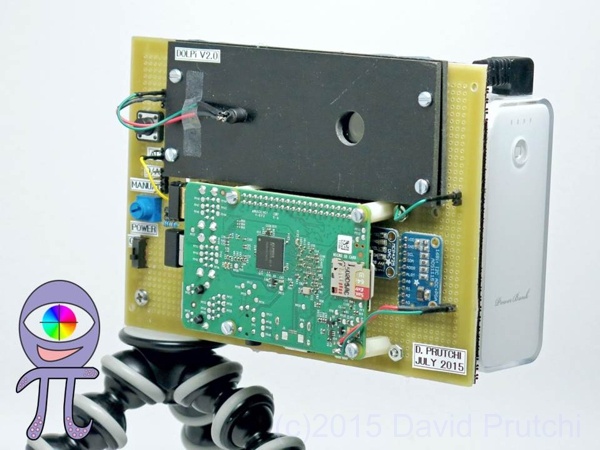
Three years ago I developed the DOLPi polarimetric cameras based on the Raspberry Pi. One used an electro-optical polarization analyzer, while the other used discrete polarization filters mounted on a filter wheel. The only issue with their performance was lack of speed. I mentioned back then that high-speed polarization imagers have been built using multiple sensors, each with its dedicated, fixed-state polarization analyzer. I finally got around to converting a 1980s-era three-tube camera into a real-time polarimetric imager. The full whitepaper with detailed step-by-step instructions is available for download in pdf format at: Converting_the_JVC_KY-1900_into_a_Real-Time_Polarimetric_Imager_-_Prutchi_2018


 Andrew Gliesman sent me these pictures of his DOLPi Visor replication along with a very kind note.
Andrew Gliesman sent me these pictures of his DOLPi Visor replication along with a very kind note.
